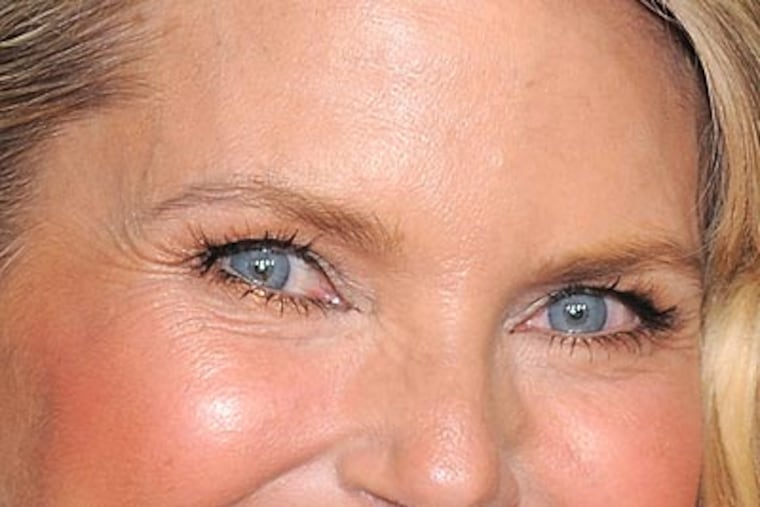Why eyes change color as you age
Question: What causes the iris of the eye to change color? For most of my life, my iris color in each eye was dark brown. When I was in my 50s, the color began to lighten. I'm now 62, and the iris color is hazel, a mix of brown and green. Also, my father's eyes slowly changed from hazel to pale blue by the time he was in his 70s.Answer: The color of our eyes is based on the number and color of pigment granules (melanin) in our iris. These granules range in color from nearly colorless to dark brown. The darker the pigment, the darker the eye color is. The fewer the granules, the lighter the eye color is. Babies are typically born with blue eyes due to a minimal amount of melanin pigment in the iris at birth. From 10 to 15 percent of the Caucasian population will see a change in their eye color as they age. In the case of you and your father, the eye color changed due either to a gradual decrease in the number of pigment granules in the iris or to a degradation of the granules. Your father had a greater loss of pigmented granules, and this caused his eyes to appear blue later in life. There's a small chance that an eye disease like pigmentary glaucoma, Horner's syndrome, or Fuchs heterochromic iridocyclitis could cause eye color changes, but these tend to be associated with a more rapid change in eye color. An eye doctor could determine if such an eye disease exists.

Question: What causes the iris of the eye to change color? For most of my life, my iris color in each eye was dark brown. When I was in my 50s, the color began to lighten. I'm now 62, and the iris color is hazel, a mix of brown and green. Also, my father's eyes slowly changed from hazel to pale blue by the time he was in his 70s.
Answer: The color of our eyes is based on the number and color of pigment granules (melanin) in our iris. These granules range in color from nearly colorless to dark brown. The darker the pigment, the darker the eye color is. The fewer the granules, the lighter the eye color is. Babies are typically born with blue eyes due to a minimal amount of melanin pigment in the iris at birth. From 10 to 15 percent of the Caucasian population will see a change in their eye color as they age. In the case of you and your father, the eye color changed due either to a gradual decrease in the number of pigment granules in the iris or to a degradation of the granules. Your father had a greater loss of pigmented granules, and this caused his eyes to appear blue later in life. There's a small chance that an eye disease like pigmentary glaucoma, Horner's syndrome, or Fuchs heterochromic iridocyclitis could cause eye color changes, but these tend to be associated with a more rapid change in eye color. An eye doctor could determine if such an eye disease exists.
Tank oxygen is not addicting
Q: I know everyone needs oxygen to breathe. I have emphysema and asthma and use home oxygen. When I use tank oxygen, will I become dependent upon it the more I use it?
A: No, you will not get "addicted to oxygen." In fact, using supplemental oxygen allows you to be more active and can help you improve your physical conditioning and sense of well-being. You have chronic lung disease that necessitates using oxygen. Studies have shown that folks like you who have an arterial blood oxygen concentration below 88 percent (a healthy level is 97 to 99 percent) will live longer and feel better and have a better quality of life. Low blood oxygen results in inadequate oxygenation to all vital organs and tissues, including the brain, heart, and skeletal muscle. Folks with severe lung disease who require supplemental oxygenation and use it 24 hours a day show a longer lifespan than those who use it for 15 hours; and those folks in turn do better than those who use it only at night.
The last point I'd like to make is about oxygen safety. Oxygen does not explode, but it does support combustion. This means one must never smoke while wearing oxygen, and should never wear oxygen while close to a gas stove or an open flame.